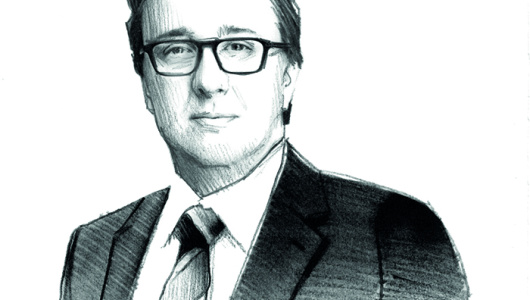
I’ve only ever had one long-term relationship, and I was always adamant that we should keep our finances separate. It wasn’t that I was willing us to break up, or even thinking we would. It was just that separate finances made me more comfortable.
Despite not exactly being careful with my spending, I am still pretty obsessive about my finances. I like to know exactly how much I have in my account nearly all of the time. This doesn’t stop me overspending. But at least I know by how much.
I check my bank account to make sure I’m not paying for any subscriptions I’m not using. I often look at my pension to see how it’s performing (I’m perfectly aware that its performance will go up and down). And whenever I renew my car insurance, I make sure I find the best deal possible.
I was interested to receive a survey recently carried out by savings brand Ford Money revealing the biggest financial red flags that can derail a date or a budding relationship.
I thought it would be fun to compare the list with my money habits and see how many financial red flags I have. I’m not actively seeking a relationship right now, but it might come in handy in the future, perhaps.
The biggest financial red flag, according to Ford Money’s research, is borrowing money and not paying it back, which was cited by 34% of those surveyed. Ok, well I always pay back money I borrow from people as soon as is viable.
This red flag was followed by boasting about having money, which was considered highly unattractive by 25%. I don’t do that.
Ford Money also found potential suitors are unlikely to secure a second date if they have a bad credit rating (22%). I have a good credit rating.
Having your card declined on a date was cited as a red flag by 21% of respondents. This has never happened to me, and I have backup cards anyway. I’m not sure I’d find this unattractive, just unfortunate.
Prioritising luxury items over savings was a red flag for 20% of respondents. Maybe I do this… I suppose it depends on whether you consider a holiday to be an item.
Meanwhile, 12% of respondents indicated that refusing to tip was a major red flag. I tip if I think the service justifies it. But I don’t agree with tipping for poor service.
Other red flags highlighted in the survey were:
- You don’t pay your way 50/50 (19%). I insist on paying half.
- You spend your cash as soon as you get paid (19%). Guilty.
- You over-rely on buy now pay later (17%). I don’t use BNPL. I don’t like it. But I do use credit cards.
- You refuse to open bank letters, letting them pile up (16%). No, I open them and file them in my elaborate filing system.
- You hide shopping bags from your other half (10%). I don’t have another half. But if I did, I certainly wouldn’t hide shopping bags. I don’t tend to buy things anyway.
I have some financial red flags of my own.
It may surprise you to know that I don’t like it when a man insists on paying for my food. I used to when I was a student, with no money and a penchant for venison and Châteauneuf-du-Pape. But now, I find it slightly patronising. Offering is fine. It’s the insisting bit that’s the red flag for me.
Another one is paying for things like subscriptions if you’re not using them, having credit card debt that’s on high-interest credit cards and thinking you don’t need a pension. Expecting to have things bought for you is another big turn-off.
I also agree that boasting about how much money you have is a red flag. If you feel the need to brag about what you have, you’re either poor and full of it, or rich and insecure.
Most of this I say in jest, and Ford Money’s survey was just a bit of light-hearted banter. But it does emphasise some important points about how money can affect relationships.
A few weeks ago, my colleague Kim wrote a Weekend Essay based on a Reddit post she’d seen about a man in his 60s who thought his wife had been contributing to her defined benefit pension scheme. But it turned out that she’d opted out years ago, assuming they could just rely on his pot, and was using the extra cash as her “fun” money.
Kim’s point was that financial transparency and professional advice are crucial for building a secure future, both individually and as a couple.
Ford Money’s survey found 14% of respondents find it difficult to talk to their partner about money, while 17% admit they hate discussing financial matters altogether. But being open and transparent is important.
I’m not suggesting leading with it on a first date. But talking about financial matters early on will likely help further down the line.
When my ex and I broke up, we didn’t have the tangled web of finances that many couples who break up or divorce find they have to unpick.
Ford Money chief deposits officer Will Davies says managing money remains a “major challenge” for younger generations today. Especially considering the ongoing cost-of-living crisis.
“Many young people genuinely want to get to grips with their finances and start saving,” he adds. “They just need a bit of guidance on where to start.”















Dear LV… I remember you wrote a similar article some time ago – also a w/end essay – this one seems more personal and detailed however…
I believe there is too much hand wringing by under 30s about money and savings – though, principles re paying/sharing are fine… I am keen on a (halfway) cheap date 🙂 – and not enough about fun, experiences, getting pissed and laid and laughing… ending up in an unexpected place or country…
One can always make money… down the road… beware NOT having a (part) wasted youth… those that don’t usually try to recompense in their 40s & 50s when the stakes are much higher and third parties get hurt!!
P.S. Despite Katy P’s (now Langcat) assertion… we never has a luncheon – if you would like some none sales or promotional copy, but hidden bank/money supply/product & tax stuff… why… yes is fine!